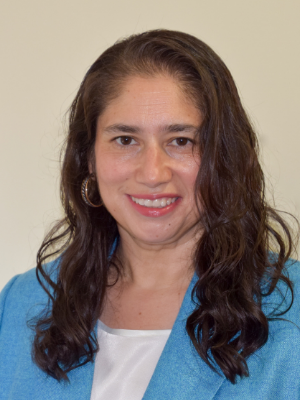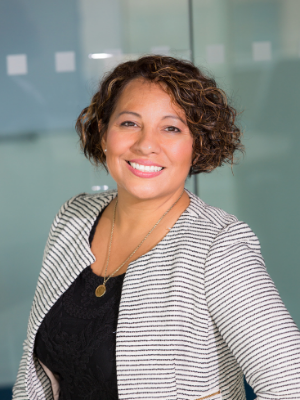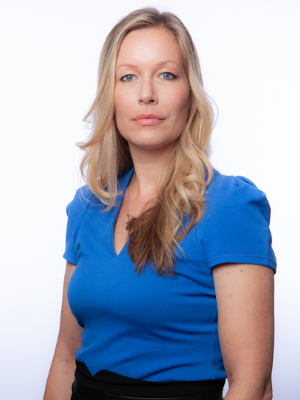 As part of celebrating Hispanic Heritage, The Glass Hammer covers career insights and tips shared by Latina Leaders in business whom we’ve had the fortune to interview over the years.
As part of celebrating Hispanic Heritage, The Glass Hammer covers career insights and tips shared by Latina Leaders in business whom we’ve had the fortune to interview over the years.
In this retrospective two-part feature, we’ve mined the best experience-based guidance across our profile interviews with Latina leaders. As the theme of authenticity, self-confidence and self-promotion have been emphasized again and again, we focus entirely on facets of this critical message for part one of this feature.
1. Claim Your Self-Worth Early In The Game
Entering an industry or an organization where too few people look like you can be challenging, but there is never a more important moment to believe in yourself and claim your worth, emphasized Ivelisse Rodriguez Simon, Managing Partner at Avante Capital Partners.
“I wish I had known from the start of my career that I should have more confidence in myself,” said Rodriguez Simon. “Over time I’ve realized that you should never doubt your own capabilities. There may be obstacles, but you can do it. With a lot of luck, hard work and great mentors I’ve made it in this industry, which is hard for women, especially minority women.”
Update: Ivelisse Rodriguez Simon remains in this position, now with Avante Capital Partners for nearly 13 years.
2. Embrace All of Who You Are
Finding an authentic sense of self is essential for all women, but especially for young Latina women just starting out in their career, impressed Yvonne Garcia, as Senior Vice President and Global Head of Client Solutions, Investment Manager Services at State Street Corporation.
“It is critical to realize that the diversity of thought and cultural experiences that you bring are so valuable to organizations. Embrace who you are, make sure you find mentors and sponsors that will help you develop and grow as a leader,” advised Garcia. “Get involved in volunteer organizations like ALPFA where you will be able to grow and give back at the same time.”
Update: Yvonne Garcia was promoted to Chief of Staff to CEO at State Street in January 2019.
3. Stay Authentic To Your Truth
In tech for over two decades, Rocio Lopez, as IT Executive at Accenture, realized at a deeper level from Accenture’s Hispanic American Employee Resource Group (ERG) that she needed to be authentic about what she brought to the table as a talented Hispanic technologist.
Both passionate about advancing diversity and leading Latinx American talent attraction initiatives, Lopez said: “The one piece of advice I would give to anyone is to be authentic. For the longest time, I was trying to run in a different size shoe – actually a male size 8. It wasn’t until I met my ERG family that I realized I like my 7.5 size red high heels.”
Update: Now with Accenture for over 26 years, Rocio Lopez was promoted to Technology Strategy Lead NA Education Practice in January 2020.
4. Allow Your Unique Personality To Shine
By allowing her unique self to shine through, Laura Sanchez, Managing Director, Private Wealth Management at Goldman Sachs, found that she was better able to form more impactful bonds with clients and colleagues that helped to create a more fulfilling career.
“When you’re new – and I had also switched industries – you may be anxious about fitting in and looking like everyone else or acting like everyone else. But trying too hard to fit in can stifle who you are. To not be yourself for the majority of your day creates a lot of stress,” Sanchez reflected. “When I’ve been true to myself and let my own light shine through, that’s when I’ve been my best. That’s when I think the success started.”
Update: Laura Sanchez remains in this position, now with Goldman Sachs for over 27 years.
5. Become A Supportive Friend to Yourself
Believing that women had many advantages in the area of dispute resolution, including the ability to appreciation a situation from multiple perspectives, Ximena Herrera-Bernal, as Counsel in the International Arbitration Group at Shearman & Sterling, London, urged women to encourage the truth of their own voice in the room.
“It is imperative to believe in your abilities and to make your views appropriately known,” Herrera-Bernal said.“ When you’re doubting yourself, imagine that you are giving advice to a female friend who is experiencing the same issues. Then listen to your own advice.”
Update: After 16 years with Shearman & Sterling, Ximena Herrera has gone on to be a Founding Partner in Gaillard Banifatemi Shelbaya (GBS) Disputes.
6. Let Your Difference Empower Your Voice
The very thing that once inhibited you from using your voice is often what validates its importance, asserted Noelle Ramirez, Project Manager, Diversity, Equity & Inclusion at PGIM.
“I bring to the table my lived and learned experience as a woman, a lesbian woman, a Hispanic woman,” said Ramirez.“ The things that kept me quiet in the room before are the things making me speak the loudest in the Diversity, Equity & Inclusion space.”
Update: Interviewed earlier this year, Noelle Ramirez remains in this position, with PGIM for nearly 2.5 years.
7. Be Forward About Owning Your Work
It was a decade into her career before Paula Arrojo, Managing Director and Private Wealth Advisor, Investment Management at Goldman Sachs, figured out that she had to match her hard work with her self-promotion.
“Women often expect that if you work really hard you’ll be noticed and rewarded. But they need to realize how important it is to let the right people know what they’re working on and what they want next – what team, what clients,” Arrojo said. “If you want to go for it, you have to position yourself to have that credibility. Had I known to be more strategic in this area earlier, I would have saved a lot of time getting to where I am.”
Update: Paula Arrojo remains in this position, now with Goldman Sachs for 21 years.
8. Beyond Your Role, Build Your Personal Brand
After watching too many women voice their great idea only after the meeting finished, inhibiting their success from their hesitation to speak up, Patricia McCarthy, Managing Director at Goldman Sachs, emphasized the importance of being proactively seen and heard.
“When you have good ideas, you need to voice them and add value. Remember that your job is to contribute to your team, and that entails being confident and pushing yourself beyond what your perceived role is,” McCarthy noted. “More than achieving a title or promotion, my biggest source of pride is establishing a personal brand as an individual who can improve a process.”
Update: Patricia McCarthy remains in this position, now with Goldman Sachs for over 17 years.
9. Be Your Own Best Advocate
When it comes to advancing as you become more senior, Grissel Mercado, as Counsel at Shearman & Sterling LLP, emphasized you have to go beyond focusing on doing excellent work and build a profile.
“Young attorneys tend to focus on delivering excellent work, which is important, but also expected. You also have to seek out opportunities to network,” said Mercado. “Nobody is a better advocate for you than yourself. Women need to take more initiative. If you’re talking with the team before a call, mention a success, just as a man would.”
Update: With the firm for 14 years, Grissel Mercado was appointed to Partner at Shearman & Sterling LLP.
10. Self-Promote To The Leaders Above You
Take the shame out of self-promotion and instead learn how to do it by doing it, emphasized Ilka Vázquez, Advisory Partner at PwC US.
“I think it’s ok to brag a little about your impact and what you’re bringing to the table. We assume someone is noticing our great work and will reward us, but the reality is that you can speed up the process if you talk about your success to people who are influential,” Vázquez noted. “Your elevator speech gets better the more you give it and can help you establish a personal brand.”
Update: Ilka Vázquez remains in this position, now with PwC for 11 years.
11. Know That You Are Ready (Enough!)
Opportunity is the chance to grow into the role, communicated Neddy Perez, as Global Head of Diversity & Inclusion, Talent Management COE at McCormick & Company.
“Women are still socialized to put their heads down and work hard with the hope that someone will recognize your success. The reality is you have to become your own best advocate. As long as you feel comfortable with 70% of requirements of a job then go for it,” encouraged Perez. “No one is ever 100% ready for their next job; we just have to get comfortable with asking for what we want and going for it.”
Update: Neddy Perez remains in this position, now with McCormick & Company for nearly 3 years.
Look out next week for part two of this series on wisdom and insight from Latina leaders in business over the years.
By Aimee Hansen






